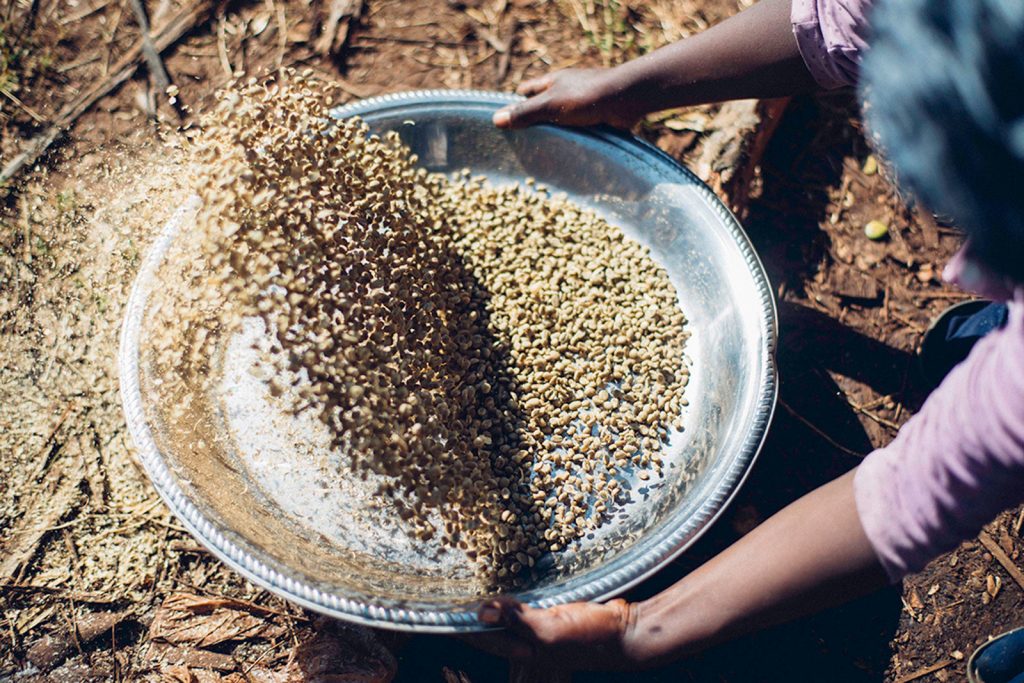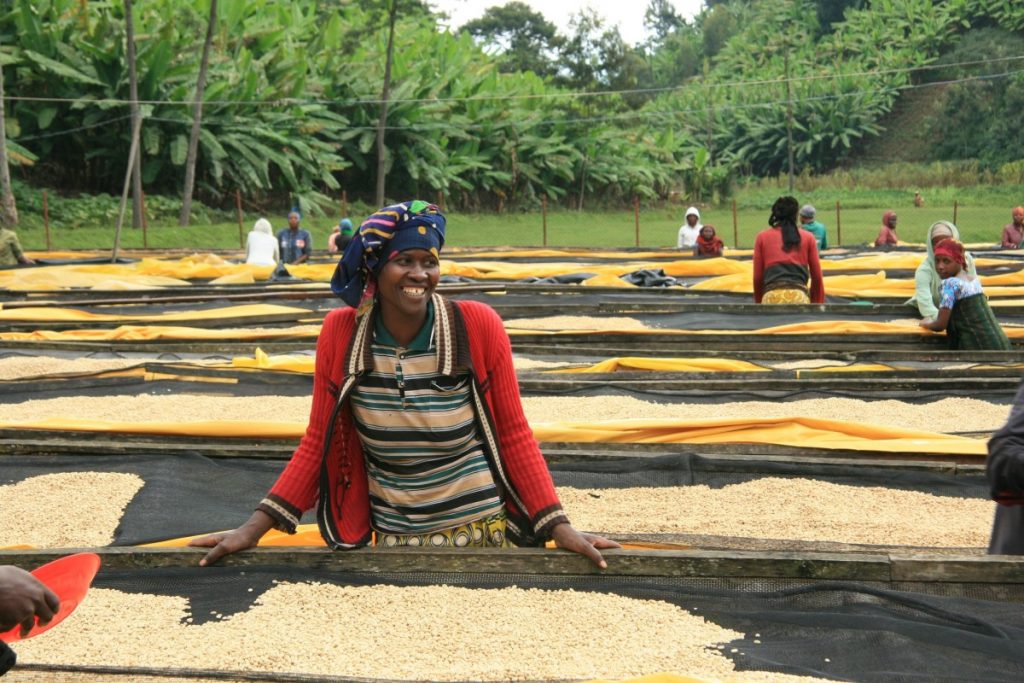Coffee Manufactory’s Transparent and Fair Business Model
Seeking the perfect supply chain starts with promoting small farms

The total contribution of the coffee industry to the US economy is around $225 billion per year—a statistic that stems from a 2015 tallying. Worldwide, the effects of its popularity permeate even the most remote locales. Unfortunately, however, many hubs for coffee bean production are systematically cut out of the earnings. Others act as middlemen in a lengthy supply chain and their employees are oftentimes exploited. Meanwhile, in Los Angeles, Coffee Manufactory, a shop and roastery born from San Francisco’s Tartine Manufactory, is consciously reworking traditional tactics to promote transparency, sustainability and humanity in the industry—all while serving their customers the highest quality cup of coffee they can.
“To truly conduct business in a sustainable manner and ensure the longevity of the coffee industry, coffee producers need to have successful businesses. And as coffee production becomes more difficult due to increasing cost of production and climate changes, it is imperative to invest in coffee production and those who grow it,” Stephanie Alcala, Coffee Manufactory’s sustainability supervisor, tells us.

“Coffee Manufactory was founded on the idea of creating radical change within the coffee industry by conducting business with sustainability at the forefront of our operational strategies,” Alcala says. “There are approximately 125 million individuals who depend on coffee production as their primary source of income, yet economic inequality continues to permeate the global coffee industry. Knowing where we source our beans from and who we are working with is essential to ensure the producers who supply us with coffee are properly compensated and receive the recognition they deserve. We do this by sourcing and working directly with established coffee producing partners.”

Coffee Manufactory began roasting their coffee inside of Tartine Manufactory, the warehouse-like complex (owned by Tartine Bakery) that houses coffee, ice cream, bread and drinks purveyors, in 2016. Before that, the subset remained synonymous with Tartine, serving coffee as a part of the bakery’s umbrella for almost two decades. But, when the opportunity arose for a fervent few to expand and devote their energy to just coffee, the Coffee Manufactory was born.

“Although very ambitious, we are a young and small company,” Alcala says. “We hope as we become more well-known throughout the coffee and culinary world, that our sustainability efforts continue to be recognized and encourage others to follow suit. That is certainly one of the driving factors behind publishing our Sustainability Reports—we are trying to be as transparent as possible, showcasing that it is indeed possible to conduct business equitably, while also making a margin as a roastery. At the end of the day, we believe deeply in our business model of putting our coffee partners and customers and employees at the forefront of our operations. And the more coffee we can sell, the more coffee we can sustainably buy.”
And Coffee Manufactory is certainly doing well by both standards. Their coffee, which can be bought online or at their trio of locations, is specifically sought after.

“We define quality as a cup of coffee that has complex clarity, which means when you drink the coffee, there will be bitterness to the cup but there will also be acidity and sweetness. There will be a nice mouthfeel (which we define as body) and an enjoyable aftertaste,” Alcala continues. “We have a line-up of six coffee offerings, with each coffee possessing a specific taste profile. For instance, our 02 is a Filter Coffee offering, while our 04 is a single-origin Latin American Coffee offering. The intention behind this is that we are able to source coffee seasonally and intentionally. This curated line-up makes our coffee more approachable, with every individual able to find a coffee that suits their liking.”

Unlike food, the specifics of a cup’s profile can be lost on some. If a dish is burnt, it’s obvious—char, smoke and a dense flavor that’s so intense it’s unappealing all noticeably present themselves. On the other hand, burnt coffee is sold universally: portions are not dosed properly, grinds are uneven or overlooked entirely, it’s left to sit, sizzle and settle. Not only does Coffee Manufactory pay careful attention to its preparation, the fruit from which they extract beans is twice inspected.

“Our decision to source coffee from smallholder coffee producers instead of larger (industrial farms) is because smallholders are responsible for cultivating ~80% of all coffee worldwide—smallholders are loosely defined as any farmer who cultivates on land of 10 hectares or less,” Alcala adds. “Yet, it is these farmers who face the highest risk management due to lack of infrastructure and/or financing, rather than larger farms. Fortunately, high-quality coffee production provides an incredible opportunity for smallholder farmers to achieve economic empowerment because by cultivating smaller plots of land, they are then able to more closely manage the quality of their harvests. With industrial farms, there is less oversight with quality and with most of these farms using mechanical harvesting techniques, there is further disconnect from quality.”

Complaints about the price of a cup of coffee (without proper context) employ a misguided trope. Surely, if the shop offers no evidence of sustainability, concern, empathy or craft, there’s no sense in being over-charged for their product—aside, perhaps, from rising rents. But still, Coffee Manufactory is not exempt from the aforementioned issue either. While operating out of the Bay Area and Seoul, they feel no need to justify their pricing—which, by some standards, is higher than usual—because they’re honest about where the money goes.

“When purchasing from smallholder coffee producers, coffee becomes a driver for economic development because higher-quality coffee is able to fetch higher prices. And when you compound this with farmers who work collaboratively within regions, such as the case with cooperatives, then they are able to sell at larger volumes, enhance market access, and share resources and knowledge. Smallholders working together can be incredibly inspiring.”












